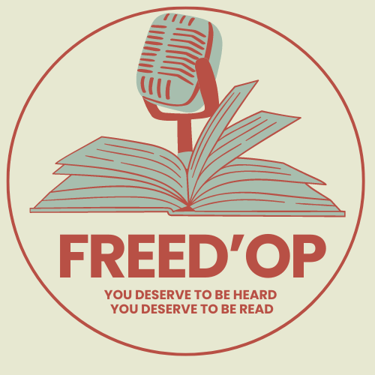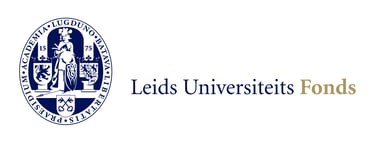While saying goodbye to Istanbul 3/3
Brody L.
2/27/2025
The sunlight was still perfect, and with several hours left before going fishing with O, I decided to abandon the map and follow my intuition to the seaside, perhaps with a bit of nose guidance. This was a skill I had learned in Hong Kong: no matter how crowded the city or how many skyscrapers there were, the streets near the sea would always have a penetrating sea breeze carrying the scent of salt.
I walked on, passing the Obelisk of Theodosius and palm trees, moving away from the tourists. The scenery before me gradually changed, transforming into a seaside Turkish town. It was a gentle transition that didn’t startle me, and I continued on silently, not wanting to disturb the locals. I walked and observed, occasionally stopping to pet a cat before moving on.
Narrow sidewalks with broken and unusable tactile paving, streets lined with parked cars, mostly Japanese or Korean brands, with the occasional old Mercedes. Passing vehicles were patient, avoiding collisions but not stopping, suddenly accelerating at slightly wider intersections. A few
children walked silently, following adults, their faces calm and showing no curiosity towards me. Most windows had welded iron frames for security and drying clothes. An old woman gazed indifferently at the street through her window.
A few restaurants were scattered along the road, with few customers and no magnificent decorations, just large menus printed without English translations. Next to a residential building, an inconspicuous mosque’s
minaret chanted scriptures, audible throughout the street, as a Turkish man sped away on a scooter. In the distance, more modern, taller buildings reflected the sunlight off their glass facades.
Suddenly, I froze, stopping to stare at an unremarkable paving stone. I realized this tile was identical to those in my hometown. No, this entire somewhat desolate and quiet residential area was strikingly similar to a
corner of my hometown, a city in southwestern China. I finally reached the seaside, the sea breeze ruffling my hair. Looking back, the small neighborhood remained unchanged, indifferent to my departure. I suddenly felt both liberated and lost by this recognition across thousands of miles.
Istanbul: Memories and the City mentions Walter Benjamin’s Die Wiederkehr des Flaneurs (The Return of the Flâneur) twice. This was a review Benjamin wrote for Franz Hessel’s Spazieren in Berlin (Walking in Berlin). Benjamin suggests that only those who have wandered or idled elsewhere would want to observe a city’s unusual landscapes — “the exotic or picturesque”. In other words, locals cannot see their own city as foreigners do, so they must become flâneurs, distancing themselves from their city to reveal its unique aspects. This distance is temporal rather than spatial, an unreturnable longing and nostalgia born of time, not homesickness in the usual sense, but a gaze of estrangement nurtured by time to examine one’s own city.
Benjamin writes in The Return of the Flâneur: “To depict a city as a native would call for other, deeper motives — the motives of the person who journeys into the past, rather than to foreign parts. ‘Stadtbuch (book of city)’ given by a native will always have something in common with memoirs; it is no accident that the writer has spent his childhood there.” Homesickness stems from growing up and leaving, but there’s also a temporal pursuit — recognizing the distance between oneself and childhood, separated by a bygone history, a social transformation. Benjamin wrote a collection of memoir-like essays, Berliner Kindheit um 1900 (Berlin Childhood around 1900). He wrote this book after being
exiled by the Nazi regime, and only then did he realize he was about to bid farewell to his city forever. It’s just like how I’ve countless times chuckled in surprise, finding traces of Guiyang and more in various corners of the Netherlands.
Pamuk sought to write about the “melancholy” of the entire city of Istanbul, a melancholy with a special name — “hüzün” (pronounced hoo zoon). In Turkish, this word originally means sadness. In the Quranic tradition, it is “used to express a deep sense of spiritual loss.” In Hüzün, time begins to reorganize space. In Pamuk’s writing, hüzün takes on a sense of modernity, no longer just a sentiment for an irretrievable past, but a sense of ruin that emerges from the interweaving of the old and the new. This sense of ruin stems from Istanbul’s two ruptures: the first with Byzantium, the second with the Ottoman Empire. The second rupture is more personal for Pamuk. This is the “Westernization” he began to feel in his childhood. Byzantium was too distant, but the Ottoman Empire that was being lost and the West that was rapidly approaching were imprinted in Pamuk’s memory like postmarks. Summoned by hüzün, he views the past as strange images, wandering through his memories, thus distancing himself from reality.
Like any great city in the world, Istanbul’s greatest challenge today is maintaining its elegance amidst the flooding of tourists. In the city center, it’s difficult to find the elegance you might expect. However, as I waited for transportation by the secluded pier near Yenikapı Şehir Park, I felt a cool serenity under the sun. The park is pushed aside by four-lane roads, with few fainéant pedestrians and cars speeding by. The white walls separating the roads from residential areas are marked with some graffiti, with bits of litter scattered on the grass. Time passes slowly with the flow of traffic, while in the distance, the dilapidated stone walls from the late
Ottoman Empire still stood unscrambled. Somehow, this reminds me of Beijing in the early 1990s — that kind of tranquility and emptiness, a sense of being abandoned by the world and the resulting self abandonment, along with the cheerfulness and carefree freedom that comes with such abandonment.
In the long wait, I suddenly realized that expecting a bus to arrive on time in a city of millions filled with tourists was quite arrogant. I had no choice but to retrace my steps, and the neighborhood that reminded me of home remained unchanged. Back at Eminönü pier, I was told the boat to Besiktas, the nearest pier for reaching the fishing coast, had already departed. I felt utterly dejected, having missed the chance to view the Bosphorus from a sunset ferry. But I had long decided to revisit Istanbul. What I missed, I would make up for, and what couldn’t be made up for, I would accept — a lesson learned only through the premature past year.
Stuck in traffic, O messaged me to hop off the bus and catch a boat near a university. I began to run, passing slow-walking pedestrians, tourists, and university students, until I finally saw the Bosphorus. I watched passengers boarding as crew members began untying ropes. I shouted “Wait!” and ran faster, leaping onto the boat. I laughed. As the boat set off, I moved to the stern. There, I witnessed the most beautiful seascape of my life. The Bosphorus was like blue silk, smooth as milk, dotted with countless transparent jellyfish floating up and down. In the distance, the sky blushed an incredibly shy and gentle pink, while purple light enveloped the distant mountains and houses. Seabirds flew towards the horizon, cars traversed the bridge, and vendors called out selling tea and coffee. I shed tears of joy. I wanted to thank everyone who had brought me here.
In the distance, the Maiden’s Tower stood crystal clear. O had once told me its story: a fortune teller told the king his daughter would die from a
snake’s venom. The king then imprisoned his daughter on this lonely island, bringing her food daily. However, a poisonous snake hidden in a fruit basket bit the princess, and she inevitably died. What state of mind were people in when they created this tale?
As soon as the boat docked, I rushed off, running towards the Bosphorus Bridge. I sprinted along the sea on the pier, passing fishing boats, tour boats, and distant cruise ships shrouded in shadows. I ran past seafood restaurants, bakeries, and seaside bars. I passed elderly fishermen, couples sitting on benches, and other runners. I wanted to see O before this silken sea was engulfed in darkness, to personally thank O for getting me on that boat. My heart was content. In short, hating being late and loving being on time is good nature.
As I was walking back to the hostel with a doner kebab in hand, a Turkish little boy stopped me, grabbing my wrist and shouting, “Give me, give me!” I’ve never liked aggressive begging, so I just mumbled “no” and looked around to see if anyone else was approaching. But I noticed he was only staring at my food, so I let go. He took the doner, biting into it with no hesitation, and left. I was momentarily stunned. When I came to my senses, I reached for my wallet, trying to give the kid some money, but he had already run off, disappearing into the night.
What was I doing at his age? His street smarts were probably ten times mine. Will he grow alright? Will he age? Will he one day travel further? True travel is not just about witnessing wonderful spectacles; it should equally be about witnessing the mundane and the suffering. Simply seeing that “people in the world still live like this” is enough to broaden one’s mind. This land before me, New Rome, the Queen of Cities, how many magnificent stories have unfolded here? Yet now it laid as calm as old age in the night.
I packed up my things, and left the hostel on Thursday morning. Sitting on the bus to the airport, I watched countless angles and fragments of Istanbul flash before my eyes. In multiple reflections, Istanbul became increasingly rich and complete, all of it a landscape, yet also elusive and fleeting fragments.
It was at this moment that I decided to write all this down, to thank Istanbul for everything it had given me. Of course, my story will not be objective, nor even truly subjective. For the influence that great writers projected upon their cities. Pamuk planted a seed of wonder about the Ottoman traditions in the minds of travelers. As the sadness one would naturally feel when they walk in the city of Stefan Zweig, Vienna.
But I also decided not to write down everything. As Albert Camus said in Summer in Algiers, “the loves we share with a city are often secret loves.” If time had allowed, I would have loved to fish one morning in Istanbul, hiking on hills in the suburbs, and play chess with the elderly in the square. But I don’t belong here, and even the most beautiful places must eventually be bid farewell.
Goodbye, although saying goodbye is to die a little.
Part 3/3
Brody L.


